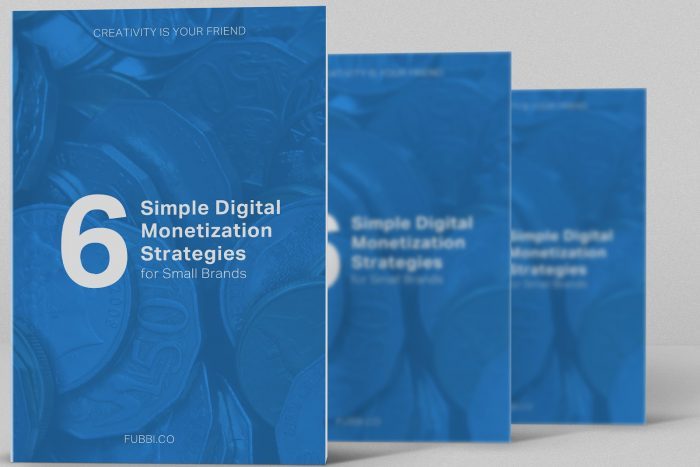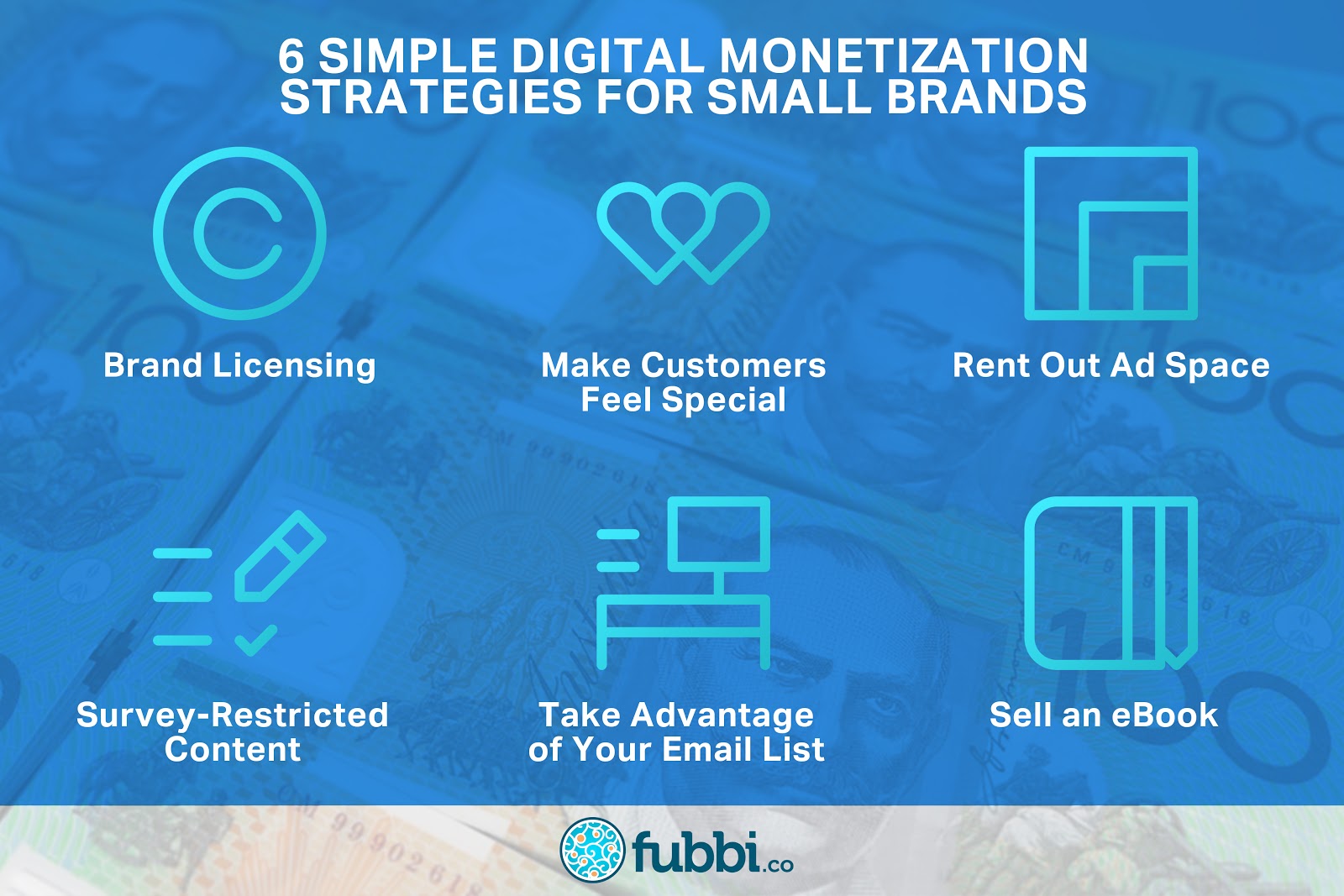
6 Simple Digital Monetization Strategies for Small Brands
Small brands must maximise their income streams. Creativity is your friend. With the right digital monetization strategies, you can access new, profit-making opportunities.
You have a small brand and you’re doing battle with the big boys every day. You have to fight for every scrap on the table.
This can feel like an impossible task.
Your largest competitors have so many more resources at their disposal. They can throw money at the problem, and gain brand exposure in the process.
You need a way of monetizing digital products to compete.
An intelligent monetization strategy creates new income streams and gets your brand out there. Click To TweetHere are six simple strategies that don’t cost a lot of money.
Strategy #1 – Brand Licensing
As you build your brand, new opportunities appear.
Brand licensing allows you to expand your reach and influence.
Better yet, you’ll encroach on new territories you’re previous strategies failed to breach. Get it right, and you can generate more revenue.
It’s not an easy game to play. Furthermore, it’s not for every business. You need a brand you can license with others. Think of Angry Birds. Major brands, such as Star Wars, licensed this brand for their own products. Now, Angry Birds has its own movie.
All licensing agencies look for the next big opportunity, and there’s plenty of licensees out there. Your brand could be the next one to break big.
Strategy #2 – Make Customers Feel Special
You’ve heard about brand advocacy. This involves engaging your customers to the point where they want to talk about your brand. They move from passive to active consumers, and you gain a weapon in your marketing arsenal.
So how do you encourage brand advocacy?
Make your customers feel special. For example, create a special membership option that offers bonuses and discounts to your VIP customers. For a small monthly fee, you can offer free shipping, or exclusive discounts.
This is a key monetization strategy. You engage your customers and generate income from those who want to become part of your more select group.
Strategy #3 – Rent Out Ad Space
Imagine you own an office building. Your company takes up half of the rooms, so what do you do with the vacant ones? You rent them out to other businesses. They generate extra income, and you gain access to potential partners.
Think of your website as that office building. There’s space that you aren’t using. Or, you could create space for a strategic partner.
Rent advertising space out to others as a monetization strategy. You could also incorporate guest blogging into your monetization strategy. Other businesses want to reach more people, so charge them for the privilege of accessing your audience.

Strategy #4 – Survey-Restricted Content
Perhaps you don’t want to use a paywall for your premium content. After all, you’re just restricting how much of your brand your visitors can see.
Surveys offer another way. Google, along with other networks, offer publishers the chance to place surveys in front of their premium content.
These surveys ask market research questions. Your user fills it out, submits it, and gets access to your content.
You get paid for the completed survey, while the customer doesn’t have to pay money for your content. The survey maker receives valuable information too, so everyone wins.
Strategy #5 – Take Advantage of Your Email List
How do you monetize the email addresses your business collects?
With the traditional model, you send out emails hoping that your content attracts purchases or click-throughs. Email draws people in, and your website does the rest of the work.
However, your email list is now an asset to your business. Other companies want access to your data, and you can charge for it.
There are stumbling blocks with his monetization strategy. For example, you must get approval from the address holder to sell the address to a third party. Get permission, and you can sell these less tangible assets.
Strategy #6 – Sell an eBook
Your website isn’t the only place for your content. The advent of eBooks offers you a new avenue for getting your brand out there.
eBooks offer several ways to monetize your content. There’s whatever fee you attach to the book. However, you can also use it to gather email addresses, acquire new customers, and position your brand as a leader in its field.
Conclusion
All small brands want to break through the noise. Larger brands may have more tools and cash at their disposal, but these strategies show that you have ways to monetize your content.
Combine the ideas above into a comprehensive strategy. Your content will generate more income, and you’ll gain exposure for your brand.

